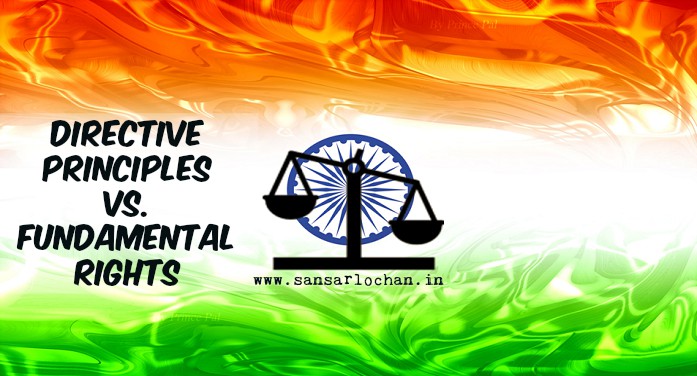The Directive Principles of State Policy are let down in Part IV of the Constitution and Fundamental Rights are described in Part III thereof are both equally part of the Constitution. They are both equally meant to be fundamental in their concerned spheres. Yet in nature, objective and application they present a study in contrast. Well, there are few similarities between the Directive Principles and the Fundamental Rights as well. Like they both are in the imperative mood, although the modes of their enforcement are different. They both have the same amending process. But here in this article we will focus on discussing 10 basic difference between the Directive Principles and the Fundamental Rights.
Difference between Directive Principles and Fundamental Rights
- The Directive Principles are not law, whereas the Fundamental Rights are part of the law of the country.
- As there are not law, the Directive Principles are not justiciable, nor they are justiciable facts. Their enforcement has been clearly excluded from the jurisdiction of the courts. Though they are recognized by the courts and have legal significance. But the Fundamental Rights are law, and hence justiciable and enforceable in the court of law.
- Being non-legal, the Directive Principles are required to be transformed into laws for their implementation. Even without such legislation they may be operating effectively in certain executive and administrative areas where legislation is not a precondition for the exercise of a power. Fundamental Rights, on the other hand, are self-executory.
- The Directive Principles are basic to the governance of the country, and the Fundamental Rights are of basic importance in the field of individual rights.
- The DPSP are more general and the FR are specific.
- The Directive Principles do not bestow a person with any definite power, the Fundamental Rights invest a person or an individual with defined capacity.
- The Directive Principles are not a source of power for the administration while the Fundamental Rights are meant to control and contain the public authorities in the country.
- The DPSP are forward-looking while the Fundamental Rights are inward-looking. The former are the roadmap for the future whereas the latter look to the present as tethered to the present.
- The Directive Principles are concerned with dynamics of future law making while the Fundamental Rights are the safeguards created for the have-nots of the land.
- The Directive Principles are socialistic and the Fundamental Rights are individualistic.
